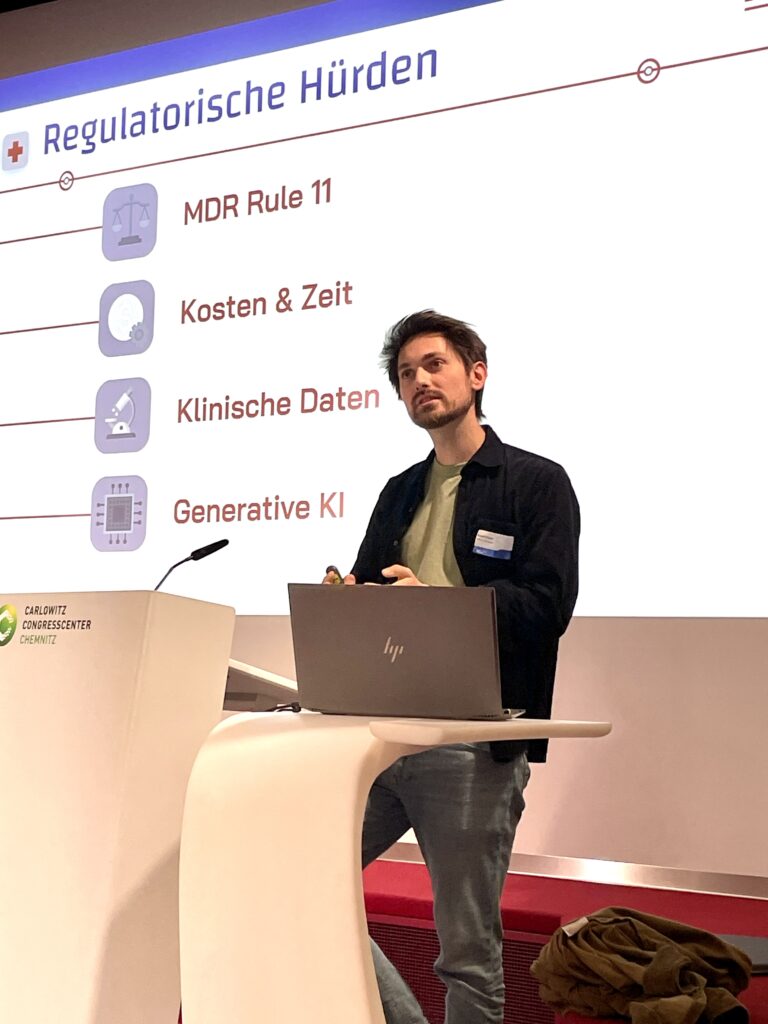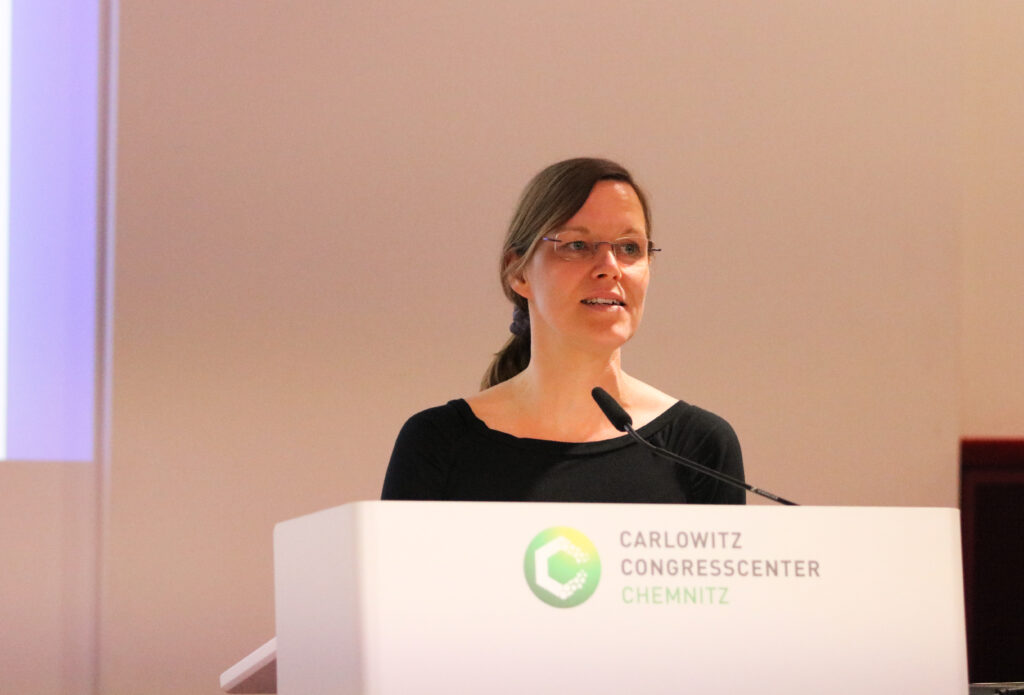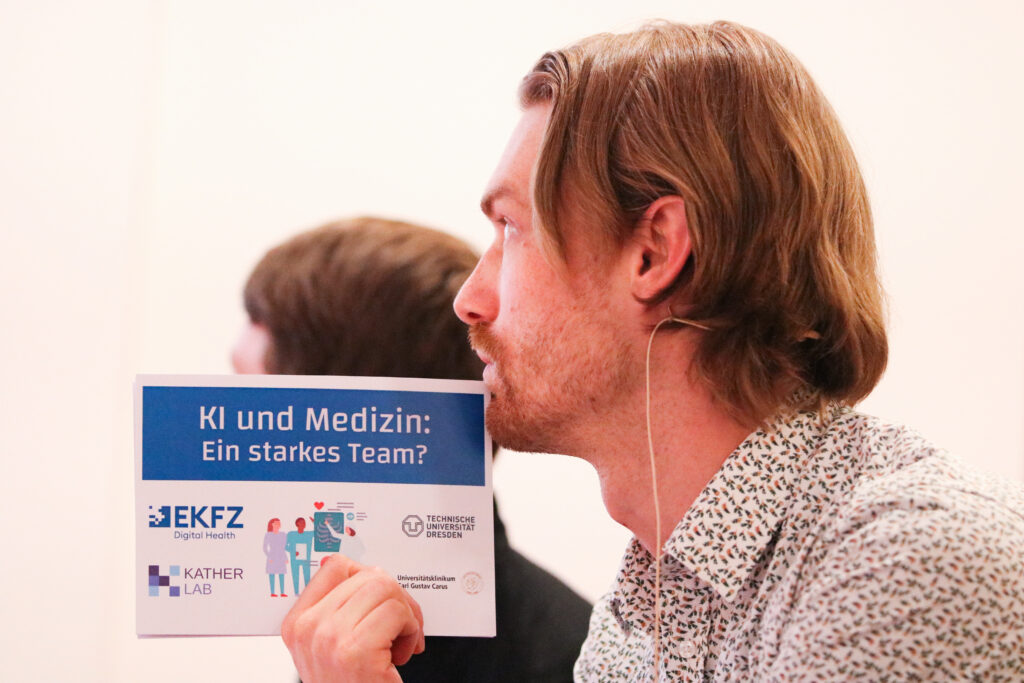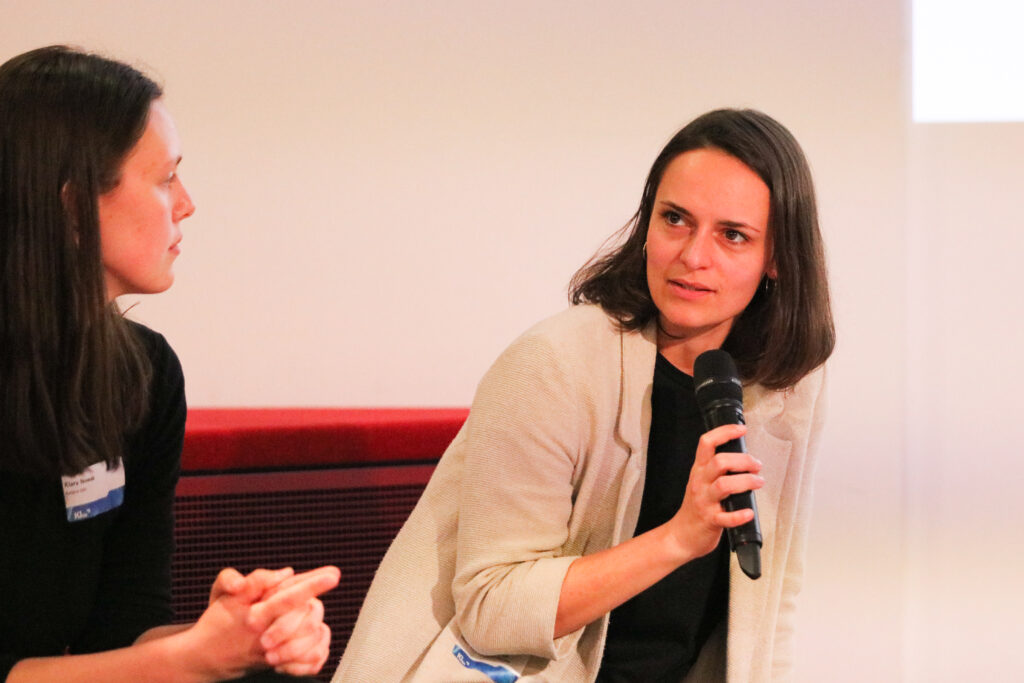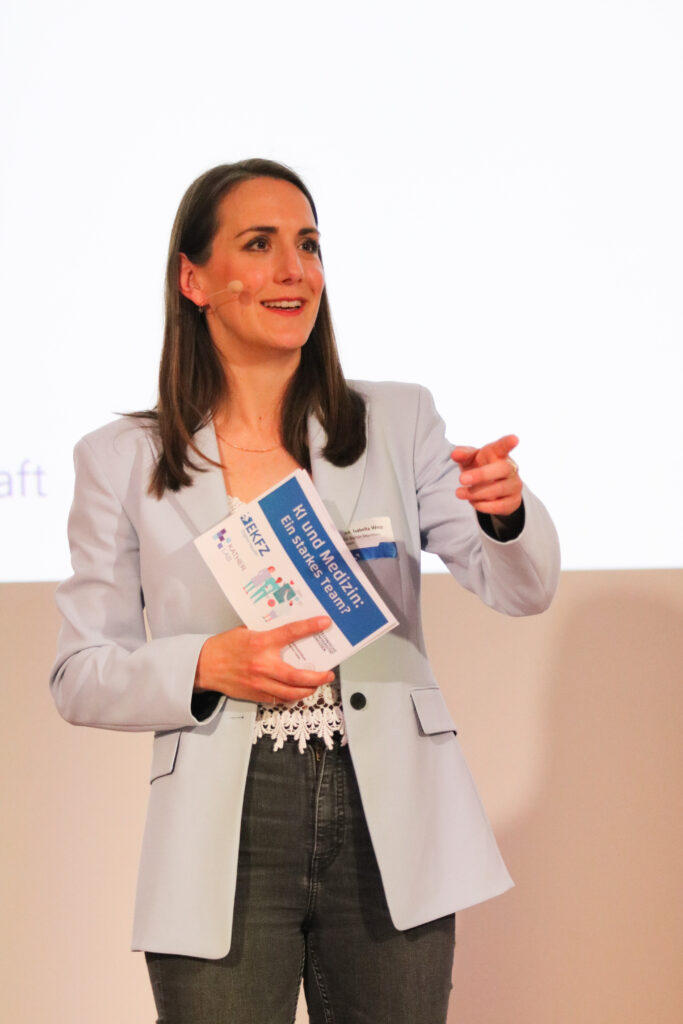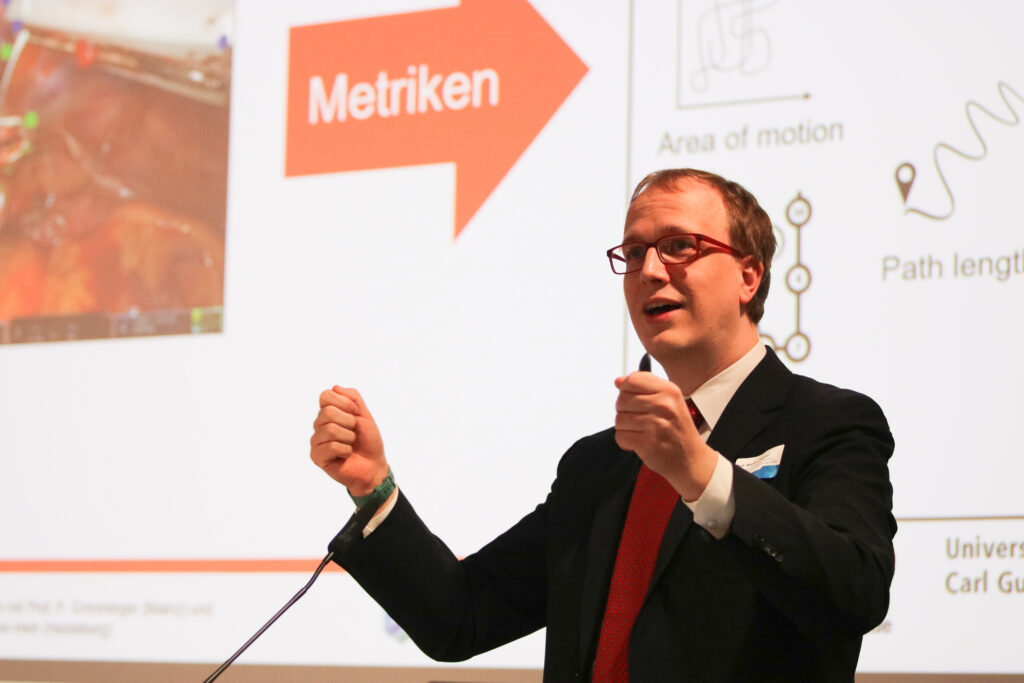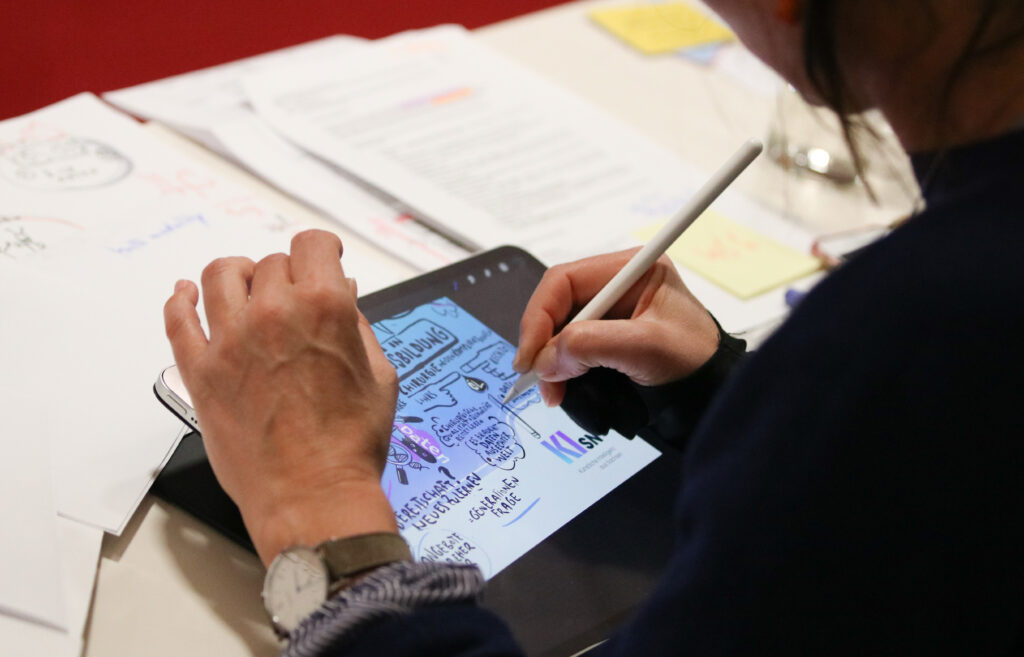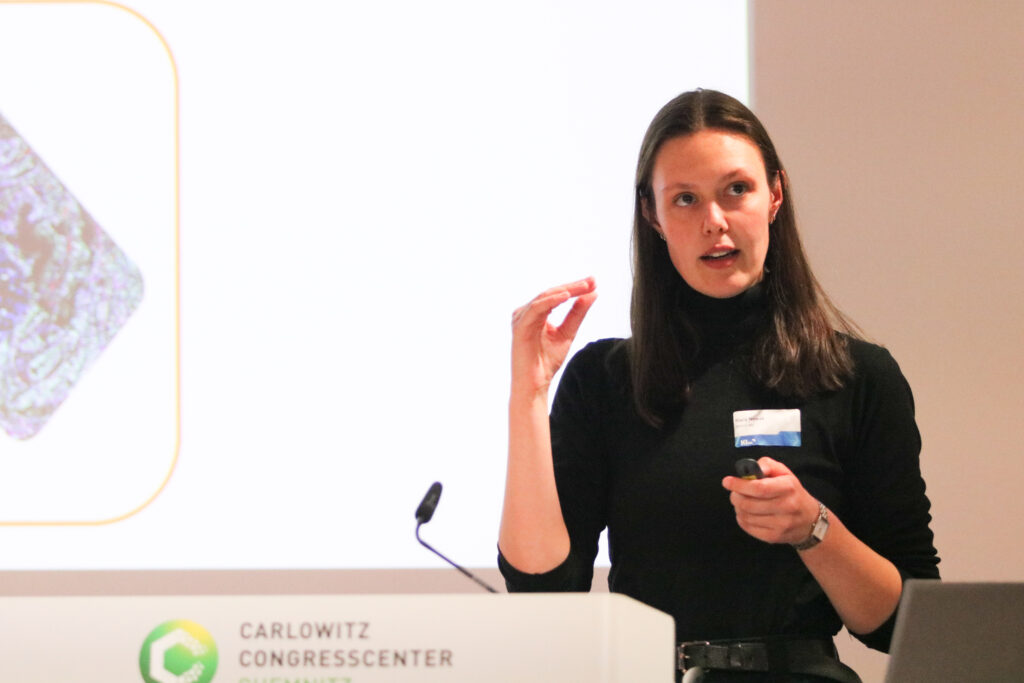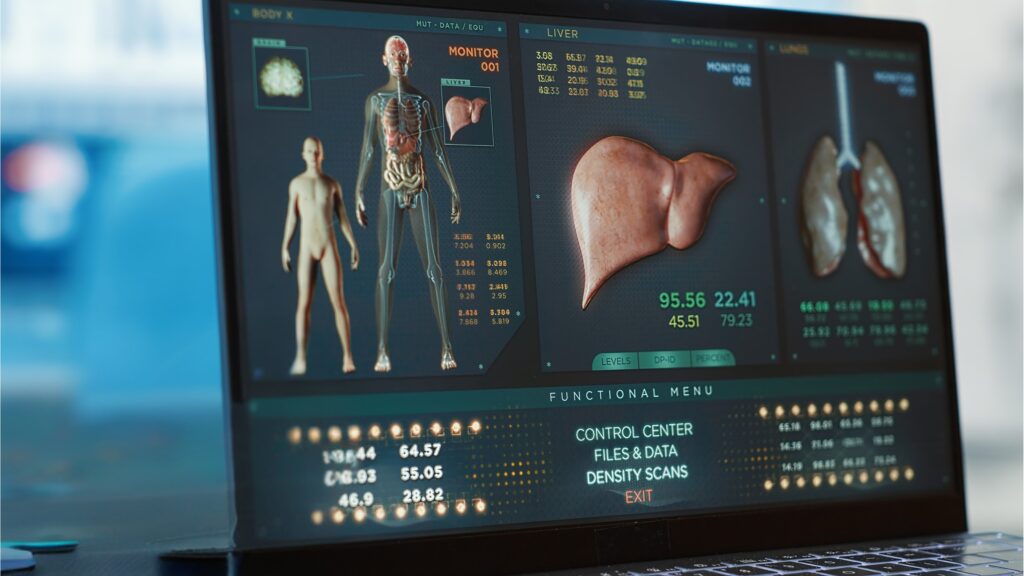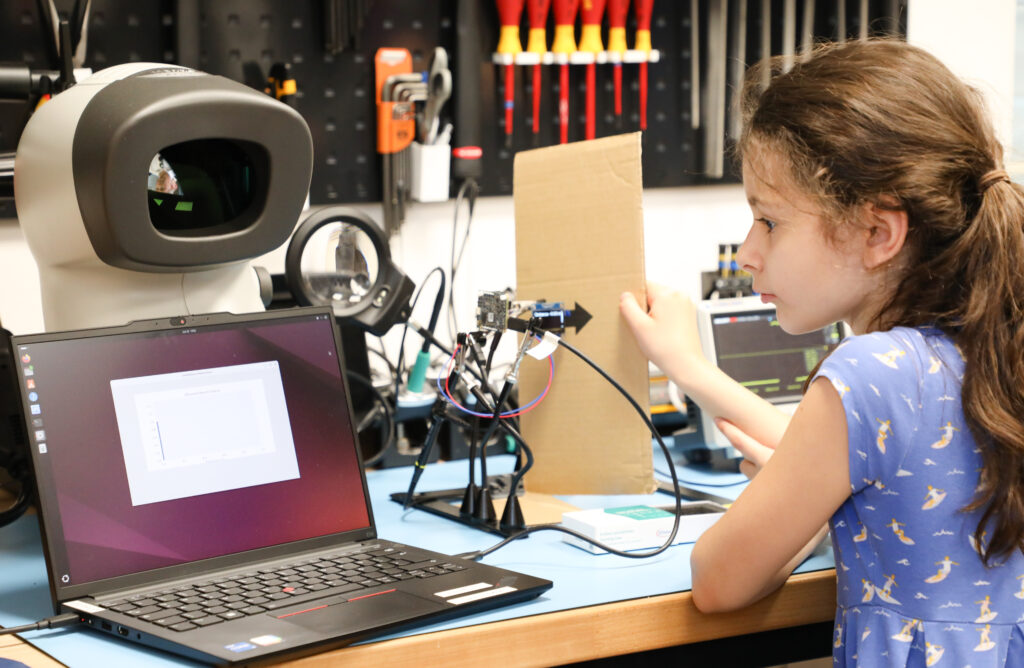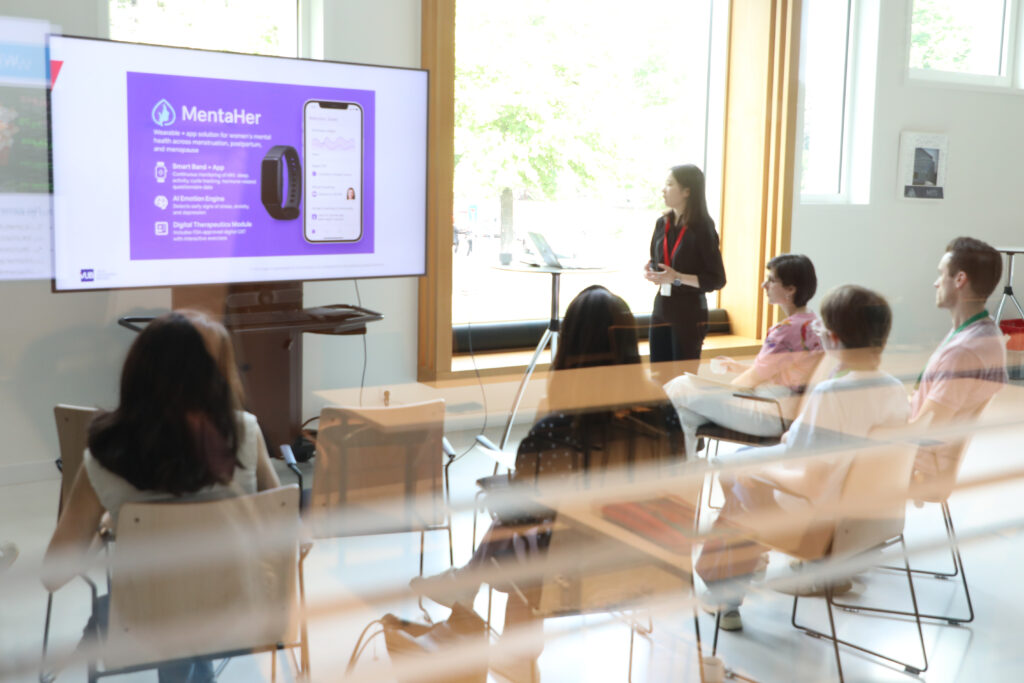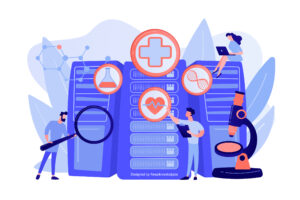At the recent 3rd AI Congress held in Chemnitz on 16 and 17 April, the Saxon State brought together around 300 participants to explore practical applications and implications of artificial intelligence. The KatherLab hosted a workshop titled “AI in Medicine: A Strong Team?” with Katana Labs, the Institute for Medical Informatics and Biometry and the Clinic for Visceral, Thoracic and Vascular Surgery at the University Hospital Dresden.
The session began with a science slam that took the audience back to the future. Marco Gustav and Dr. Isabella Wiest presented a fictional patient’s journey through the healthcare system. The other speakers Dr. Hannah Muti, Dipl.-Ing. Katja Hoffmann, Oscar Freyer, Klara Nowak and Prof. Martin Wagner illustrated how AI is becoming an integral part of medical diagnostics, therapy suggestions, and the education and training of healthcare professionals. The speakers highlighted the role of AI in improving clinical practice and explored regulatory challenges and startup experiences in the field.
In line with the congress theme, ‘From Wow to How: Practical Insights and Applications’, the session provided practical examples of AI’s impact in healthcare. Discussions included AI’s ability to support decision-making in medical contexts, the integration of AI with existing medical technologies, and the regulatory considerations surrounding its use. The speakers highlighted Dresden’s unique ecosystem, with its excellent University of Technology and the outstanding University Hospital, which foster an innovative environment for AI and medical research.


